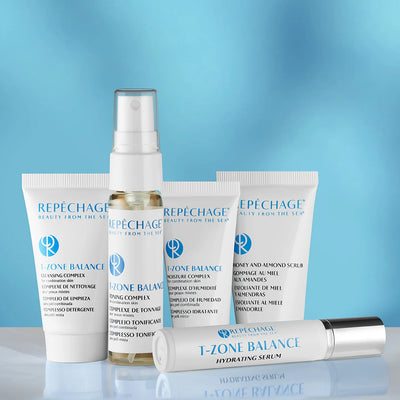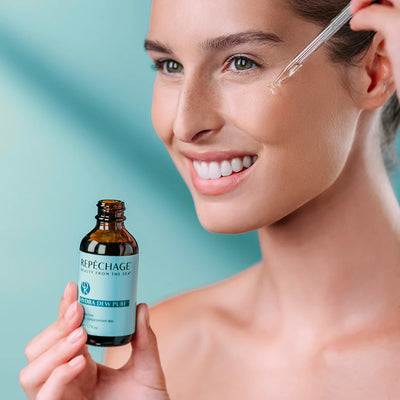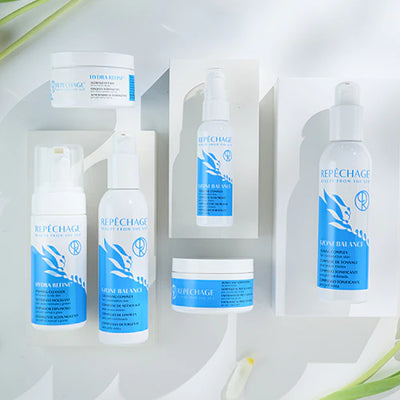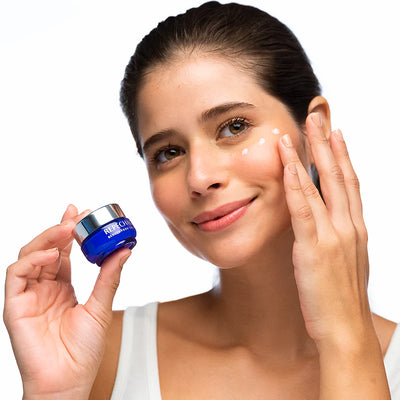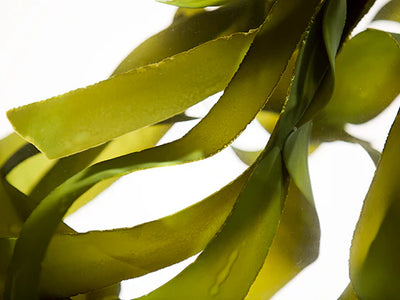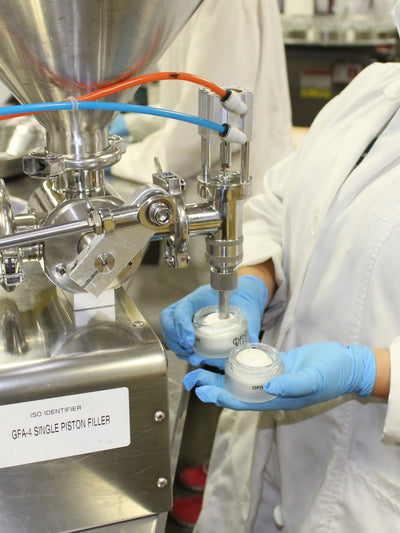Acids That Benefit Your Skin
To some of you the word “acids” may sound scary, but when it comes to your skin, you can think of acids as your skin transformers! From exfoliating to helping even your skin tone, acids can benefit your skin in many ways. We discussed their role in facial peels last week, but read below to learn more about the roles they play in your various skin care products.
Alpha Hydroxy Acids (AHAs) vs. Beta Hydroxy Acids (BHAs)
The two most common types of acids are AHAs and BHAs. What’s the difference? The difference is their lipid solubility. AHAs are water soluble (they dissolve in water), while BHAs are oil soluble (they dissolve in oil). The way they each dissolve make them useful for certain skin types and concerns (read below).
AHAs
AHAs aid in cell renewal, help reduce fine lines, and help even skin tone. Here’s a list of Alpha Hydroxy Acids for the skin that are derived from natural sources:
Glycolic Acid

Glycolic Acid comes from the sugar cane. Glycolic Acid helps to resurface the skin on a deeper level and remove the discolorations on the skin, making them excellent for skin brightening.
Lactic Acid

Lactic Acid is derived from sour milk and is a very gentle, yet effective, anti-aging ingredient that helps renew skin cells. Lactic acids work as an exfoliant by “ungluing” the cells of the epidermis, allowing the dead skin cells to slough off, and new skin to grow. The result is smoother, more flexible skin.
Fruit Acids



Fruit Acids include Malic Acid that is derived from apples, Citric Acid from lemons and Tartaric Acid from grapes. All three are excellent for a gentle form of exfoliation and skin renewal. They are great to help combat the first signs of aging or for skin that has a dull complexion.
BHAs
Salicylic Acid

The main type of BHA is Salicylic Acid. Salicylic Acid is also derived from a natural source, the bark of a willow tree. Since Salicylic Acid is oil soluble, it is able to penetrate deep into the pores to exfoliate dead skin cells and excess oil. This feature makes them an excellent choice for acne-prone skin, and treating blackheads and white heads.
Other Types of Acids
Other types of acids may also exist in your skin care, but have properties other than exfoliating your skin. Some of the most common you may see are:
Hyaluronic Acid

Hyaluronic Acid (Sodium Hyaluronate) is a type of acid that is extremely moisturizing to the skin. It is a natural moisturizing polysaccharide that is present in the skin and can hold 100x its weight in water. It plays an important role in wound healing and tissue repair.
Kojic Acid

Kojic Acid is derived from mushrooms. It is a non-sensitizing, brightening agent that helps to even skin tone. It works by inhibiting tyrosinase, the enzyme that produces melanin (the protein that produces color in your skin.)
Linoleic Acid

Linoleic Acid is an unsaturated omega-6 fatty acid found in many vegetable oils like sunflower and safflower oil. It helps aid in moisture retention to soften the skin and is anti-inflammatory. It also helps protect the skin’s natural barrier from environmental damage.
Alginic Acid

Alginic Acid is a polysaccharide (building blocks of protein for the skin) that comes from Ascophyllum Nodosum seaweed. Like Hyaluronic Acid, it helps lock moisture in the skin like a sponge, allowing skin to stay hydrated.
Next time you see one of these “acids” on your ingredient label, don’t get spooked! If you’re using any skin care products with any of the above, share with us below how they have helped your skin!


